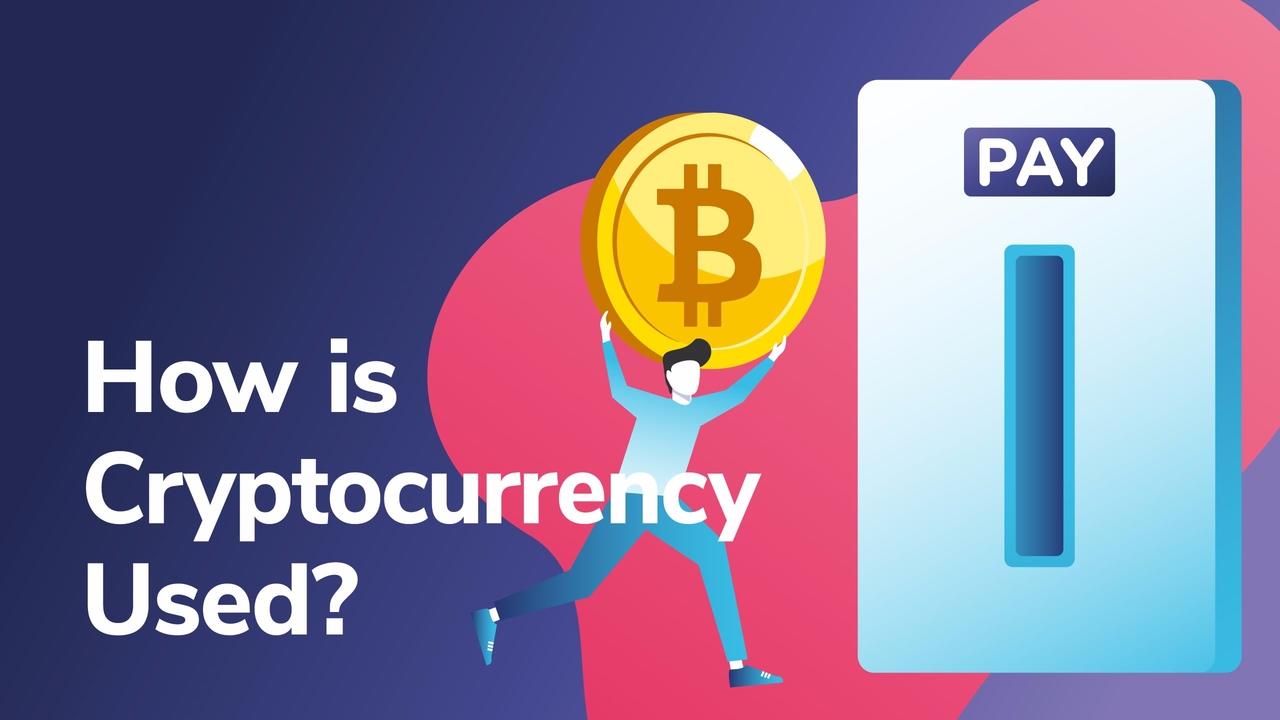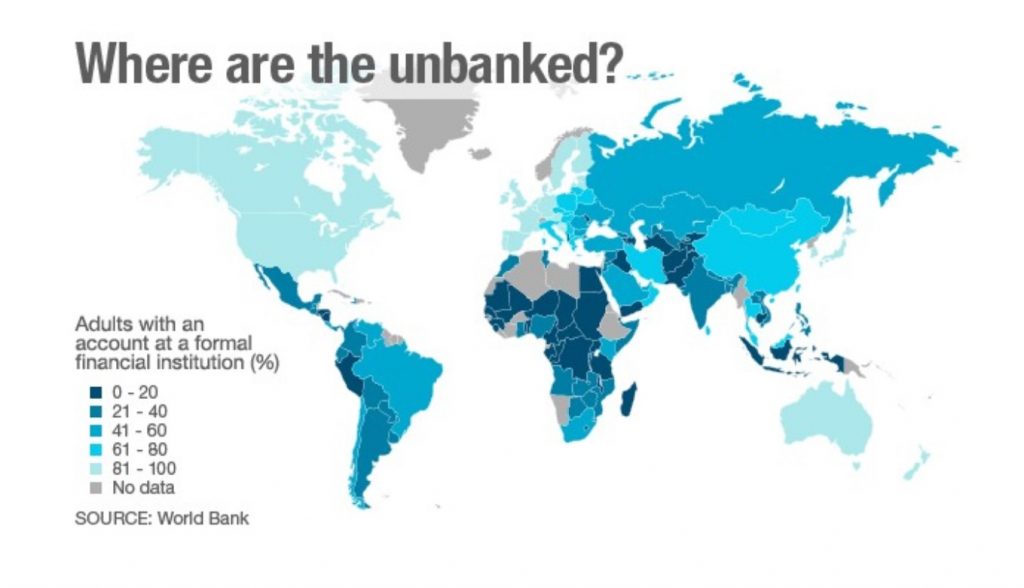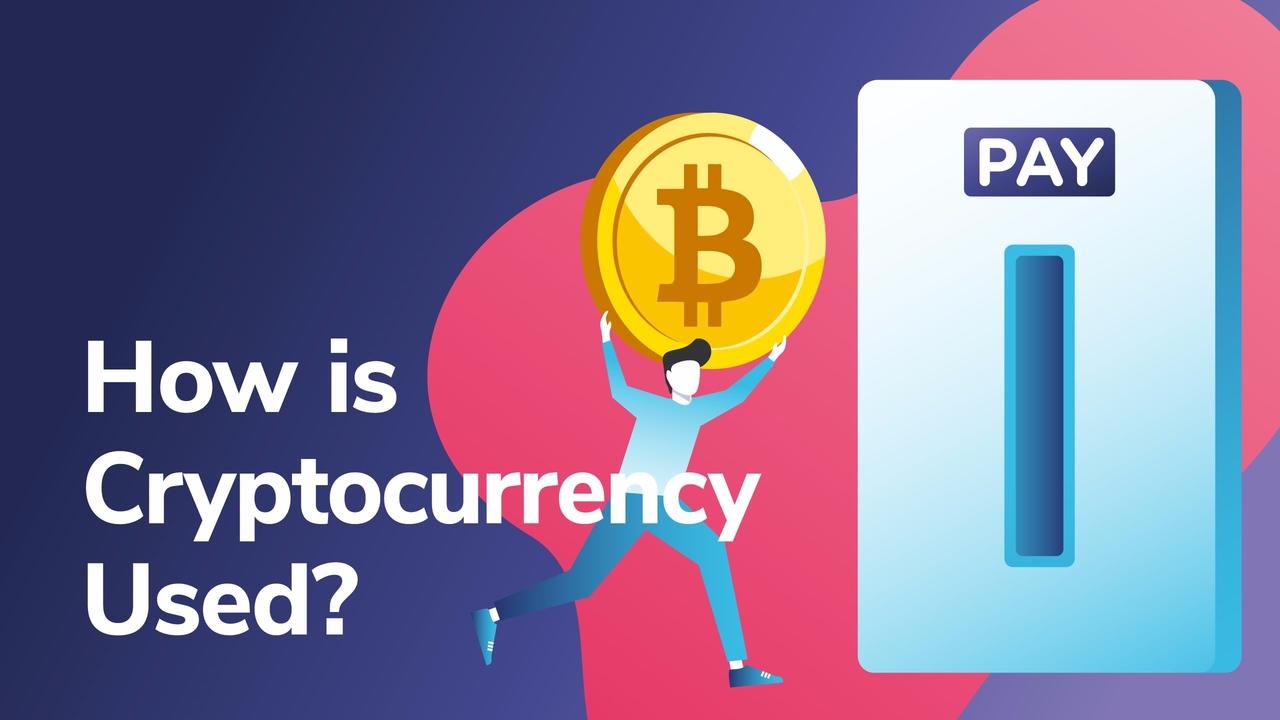
Cryptocurrencies have evolved massively over the past decade. What was once perceived as a novelty or even a joke, is now at the forefront of technological innovation, pushing towards a new era in modern finance. But how is cryptocurrency used, and what are the advantages of crypto?
In this article, we explore some of the various innovative use cases for cryptocurrency, the advantages of adopting blockchain technology, and how it is implemented across various sectors. After reading it, you’ll know all about how cryptocurrency is used, and various advantages crypto presents over legacy technologies.
Are you new to the cryptocurrency sector? If so, we highly recommend that you check out Ivan on Tech Academy. The Academy is the best place to learn all about cryptocurrency, Bitcoin, blockchain and decentralized finance. We cover everything from crypto for beginners to advanced courses on Ethereum smart contract programming. Join today!
What is Cryptocurrency?
Cryptocurrency is a type of digital currency that is cryptographically secure through the use of blockchain technology, a type of distributed ledger technology. Blockchain offers a decentralized, open-source public ledger of all transactions completed, that is mathematically verified and maintained by a global network of computers called nodes.
Cryptocurrencies and tokens are used for their advantageous properties of immutability and transparency. Cryptocurrencies are digital assets and by having the private keys (password or code) to that asset, you have complete control and ownership, that cannot be manipulated by a centralized or governing party.

Bitcoin was the first cryptocurrency to be created using blockchain technology, launching in 2009, and although infamous for its volatility, the value of 1 BTC has increased over 10,000,000% in 10 years.
Despite the trials and tribulations of Bitcoin’s short history, public sentiment is changing rapidly and the legitimacy of the number one cryptocurrency is no longer in question. In fact, many high profile investors would assert that Bitcoin should be an essential part of a wide investment portfolio.
Why Is Cryptocurrency So Important?
There is an increasing number of macro factors that put the value proposition of blockchain and cryptocurrency in the spotlight. With the recent pandemic and global economic uncertainty, people from all walks of life are using cryptocurrency for a variety of reasons.
Innovation has been expedited by the global crisis, changing how we interact with each other at a rapid pace, in a way that is shaping our future. As the global economy grinds to a halt, people in many parts of the world are experiencing the result of a broken economic system.

Blockchain technology and cryptocurrency are reinventing finance, bringing together some of the greatest minds in the world to create an ecosystem of currencies that serve a multitude of purposes.
With the legacy financial system in ruins, crypto could kill the banks, ushering in a new frontier of trustless, borderless, censorship-resistant currencies built on an innovative and inherently open infrastructure to create financial services that most banks simply cannot compete with.
How Is Cryptocurrency Used?
Store Of Wealth
Bitcoin is most commonly used as a store of wealth. Because Bitcoin has a capped supply of 21 million, it cannot be artificially inflated or debased. Bitcoin is often referred to as digital gold, but the fact is that Bitcoin is far more scarce than gold, and it is much easier to transport!

It can be difficult to verify the authenticity of gold if you don’t know what to look for, but if you buy Bitcoin from a reputable exchange, you can verify that transaction on the blockchain, and you know that what you purchased is real Bitcoin.
Fundraising
The ICO boom of 2017 saw a wave of innovative fundraising campaigns facilitated by the use of cryptocurrency. Initial coin offerings are a way for developers and investors to get involved with blockchain projects early and be reimbursed with cryptocurrency tokens, avoiding the need for huge investments and start-up costs by the team behind the project.

Though many of the ICOs of 2017 were built on thin air, and most are no longer around, cryptocurrency is still widely used to gain investment and to pay developers.
The transparency blockchain offers, is being used to show donors where and how exactly their money is being spent. Charities Aid Foundation has explained how the introduction of blockchain technology offers ‘radical transparency’ for donations, with real-time updates of the charities’ financial information, encouraging more people to give without the fear of the full value of their money not reaching the cause.
Gaming
The Enjin platform, built on the Ethereum blockchain, has been created explicitly for gaming developers and re-writing ownership rules for in-game assets. In traditional gaming, the gaming company has the final say on who owns which asset. Enjin however, has created a platform for developers to create their own decentralized gaming ecosystem, with full rights and ownership to digital assets, that can be transferred between games.

This is one of the advantages of crypto associated with blockchain gaming. The ENJ token is minted and melted, used to buy items from in-game stores, or peer-to-peer trading, and as rewards for completion of levels or in-game challenges.
Hedge Against Inflation
During times of economic and political uncertainty, people have historically turned to gold as a hedge against inflation or a devaluing currency. The limitations of buying, storing, and even verifying the authenticity of gold make it less appealing to younger generations.
This is where Bitcoin comes in. While central banks and governments across the world try to print their way out of economic disaster, the currency being issued loses purchasing power as the supply increases. This generally results in stock prices going up in value, as the currency they are denominated in is debased.
Bitcoin is quickly becoming one of the most compelling assets due to its increasing scarcity. There can only ever be 21 million BTC ever created, meaning that it can not be debased. Many reputable investors and wealth managers that have previously claimed Bitcoin was a scam or a fraud now openly suggest that it should be a staple in every investment portfolio as the value of the dollar continues to decline.
Supply Chain Management
Blockchain is playing a key role in optimizing supply chain management. Projects such as OriginTrail and VeChain are at the forefront of blockchain in supply chain management, bringing regulatory standards to the blockchain that ensure products meet strict criteria at every stage of the supply chain.

Cryptocurrency is used to secure the network of these supply chains, playing a pivotal role in both the upkeep of the project but also as a way to attract investment in the native tokens of the projects.
Baseline Protocol is also bringing blockchain solutions to enterprises such as Coca-Cola, Microsoft, and hundreds of global corporations to build a forward-thinking blockchain-based infrastructure for the supply chain on a global level.
Proving authenticity and proof of origin is becoming an increasingly high priority for several different sectors. By utilizing the blockchain in the supply chain, businesses and consumers are beginning to appreciate the advantages of crypto and blockchain technology.
We’ve previously detailed supply chain management use cases for blockchain technology and cryptocurrency on Ivan on Tech Academy. Moreover, you can get 20% off if you use the promo discount code BLOG20 when enrolling!
Utility Tokens
Ethereum changed the game with the introduction of several different token standards serving many different functions. The ERC-20 standard revolutionized the cryptocurrency space, allowing anyone to create their own cryptocurrency token built on the Ethereum platform. ERC-20 compliant tokens are among the most highly utilized cryptocurrencies on the market, as the ERC-20 standard provides a universally compatible way to create cryptocurrencies.

Many ERC-20 tokens are utility tokens that can serve a number of purposes, such as governance, staking, node operation, rewards, and much more!
For example, crypto tokens are used to incentivize users of web browsers, secure oracle data, and can be used to encourage users of a platform and monetize services.
Means for Businesses to Stay Alive
How is cryptocurrency used to help businesses? Many small businesses in Africa rely on cryptocurrency for daily transactions for basic goods and services. In many regions, crypto is the preferred payment method due to economic instability and hyperinflation.
Many types of cryptocurrencies are used by businesses big and small in many emerging economies as a way to circumvent extreme currency instability and as a way to transact in geographic locations that may not have easy access to banks.
Often, in Nigeria and Kenya, local independent businesses will accept Bitcoin and other cryptocurrencies and pay their international suppliers via the blockchain too. Transacting using cryptocurrency saves days in transfer time, and offers an immutable ledger of all the transaction history, increasing efficiency, and transparency for all parties involved.
Healthcare
The use of blockchain in healthcare has the potential to revolutionize the industry, optimizing efficiency, and improving experiences for both patients and practitioners, while reducing operational costs.
By storing patient records on the blockchain, patient confidentiality is dramatically improved, while those that are authorized to access them can do so in an efficient, secure way.
A few weeks ago, it was announced the world’s first blockchain-based tumor treatment center was created at the Renji Hospital in China. The one-stop fully-functional BaaS (blockchain as a service) platform, VeChain ToolChain™, is powering The Intelligent Tumor Treatment Centre, offering increased efficiency in communication, diagnosis, and treatment for patients using a transparent and traceable medical management system.

The National Health Commission has re-emphasized the importance of blockchain development following the Chinese government’s 5-year plan of economic and social development stating the technology is “essential innovation and integration of the medical and health industry”.
CBDCs
After the recent “Bretton Woods” type moment with the International Monetary Fund discussing the future of the global economy, Central Bank Digital Currencies (CBDCs) were at the forefront of the conversation.
China has already raced ahead, recently airdropping the new digital Yuan in an experimental lottery to test the advantages of crypto and blockchain-based payments. Governments and central banks across the world are experimenting with blockchain technology and CBDCs, with several countries approaching the subject with varying degrees of caution.

Although CBDCs are a step forward for blockchain mass adoption, central bank-issued digital currencies will likely be a watered-down version of cryptocurrency. The implementation of blockchain technology by governments and central banks could be a huge catalyst for innovation within the industry, but it also gives central banks and governments the ability to impose further capital controls on a whim, as they attempt to catch up to the evolving financial landscape.
Both central and commercial banks are getting involved in blockchain and cryptocurrency, along with several payment platforms now facilitating cryptocurrency services including Cash App and more recently PayPal.
Trading
How is cryptocurrency used most commonly on a day-to-day basis? Trading, of course, is one of the most popular examples of how cryptocurrency is used. Many people rely on a strong understanding of technical analysis when trading, as jumping into high-risk trading without the correct knowledge is a one-way ticket to “Rekt City”.

Some people, however, prefer to play the long game with their crypto investments, opting to hodl rather than participating in high volume margin trades. The strategy you choose will depend on your risk tolerance, but many crypto investors use a combination of both long-term holdings and short-term trades.
Financial Inclusion
Cryptocurrency is taking the outdated traditional financial system and reinventing it, both on a technological level and in terms of equality and financial inclusion.
Blockchain is one of the most disruptive technologies that has emerged in recent times, posing a major threat to the legacy financial system globally. The implications of this are massive. So big in fact, it prompted a “new Bretton Woods type moment” from the International Monetary Fund to address the global economy.
Remittances and cross-border payments incur huge fees and usually take several days to clear. Meanwhile, you can send billions of dollars worth of Bitcoin within minutes for just under $5!

There are approximately 1.4 billion people globally without access to basic banking services and financial instruments, whether due to unverifiable citizenship, insufficient paperwork, geographic location, or state oppression. By providing decentralized financial services to these people, cryptocurrency could end world poverty and reduce socio-economic disparity.
Advantages of Crypto Conclusion
The sentiment around cryptocurrency is evolving. As major institutions rush to implement blockchain technology, and the industry as a whole evolves, the use cases for cryptocurrencies are many. From yield farming and liquidity mining to pay for basic goods and services with the introduction of VISA crypto debit cards across several platforms.
The technology and cryptography that has brought cryptocurrency to where it is today, has inspired an incredible amount of development in the industry. You can already “bet” on the outcome of an election by purchasing a cryptocurrency aligned with your preferred candidate. Soon, we could even see votes cast on the blockchain and having elections results be mathematically verified. If you want to find out more about the possibilities brought about by blockchain technology and cryptocurrency, pay a visit to Ivan on Tech Academy – the go-to platform for learning about cryptocurrency!





